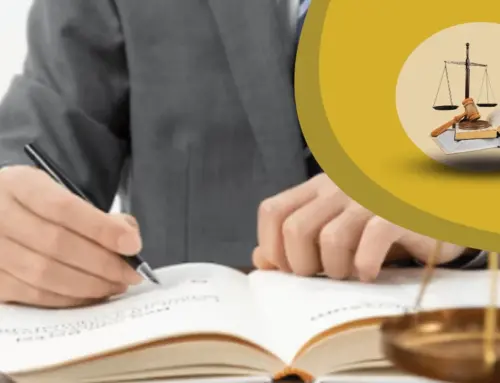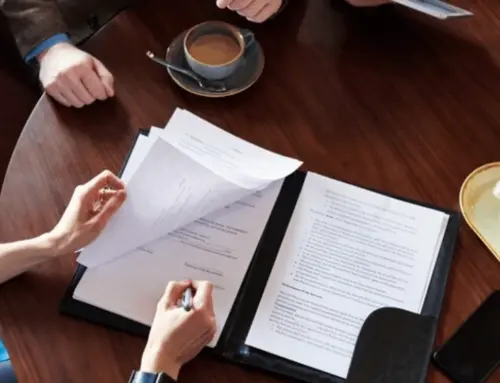Estate distribution is where law, money, and emotion collide. When grief is high and paperwork piles up, the path you choose whether DIY or with counsel can change timelines, taxes, and relationships. A good lawyer doesn’t just file forms; they reduce risk, prevent friction, and make sure intentions hold up when challenged. Here’s how strategic legal help shapes real outcomes, from validating documents to settling disputes before they explode.
What are the risks of distributing an estate without legal counsel?
Going it alone seems faster and cheaper. Often it’s the opposite—especially when assets are diverse or family dynamics are tense. Without counsel, you risk:
- Missed filings and deadlines. Probate petitions, creditor notices, inventory reports, and tax returns all carry strict dates; missing one can stall distributions or trigger penalties.
- Incorrect asset titling. Accounts, deeds, and beneficiary designations may override a will; misunderstanding this leads to transfers you never intended.
- Tax exposure. Poor planning around step-up in basis, retirement accounts, or portability can create avoidable income and estate tax bills.
- Creditor surprises. Failing to notice and bar claims can leave heirs on the hook later, even after they’ve spent distributions.
- Improper valuations. Real estate, closely held businesses, and collectibles need defensible appraisals to avoid disputes and audits.
- Fiduciary liability. Executors and trustees can be sued for mistakes—distributing too early, favoring one heir, or failing to diversify investments.
- Ambiguity snowballs. Small drafting gaps can turn into big arguments when no neutral professional steps in to interpret and document.
Legal guidance acts like guardrails: you keep moving, but you don’t tumble into procedural or financial ravines.
How can an attorney contest an unfair will distribution?
“Unfair” isn’t the same as “illegal,” but many wills buckle under scrutiny when they were executed under pressure or without formalities. An attorney can:
- Evaluate legal grounds such as lack of capacity, undue influence, duress, fraud, or failure to meet signing and witness requirements.
- Collect evidence: medical records, caregiver logs, witness affidavits, handwriting analyses, and timeline reconstructions showing vulnerability or manipulation.
- Use discovery tools to obtain emails, financial transactions, and communications that reveal who benefitted and how they steered decisions.
- Challenge suspicious documents like late-in-life codicils, abrupt beneficiary changes, or DIY templates that conflict with prior plans.
- Seek temporary orders to freeze assets, replace conflicted fiduciaries, or compel accountings while the dispute proceeds.
- Negotiate targeted settlements that reallocate assets, establish trusts for vulnerable heirs, or compensate caregivers without destroying family ties.
- Try the case when settlement fails, presenting experts and law to a judge who can void provisions or the entire will.
The goal is measured: protect intent, shield the vulnerable, and prevent opportunists from rewriting someone’s legacy.
Why might an executor need a lawyer even with a clear will?
A clear will still sits inside a complex system. Executors wear many hats—accountant, project manager, negotiator—and the law expects precision. A lawyer helps by:
- Mapping the process: probate or administration, small-estate alternatives, and whether ancillary proceedings are needed for out-of-state property.
- Managing notices to heirs, creditors, and agencies to satisfy due process and start claim clocks.
- Coordinating appraisals and liquidations, from selling a home to valuing business interests and tracking capital gains.
- Handling taxes: final income returns, fiduciary income tax, retirement account distributions, and estate tax filings when thresholds apply.
- Drafting releases and receipts so beneficiaries acknowledge distributions and waive future claims.
- Resolving conflicts around personal items, specific bequests, or perceived delays with documented, neutral steps.
- Protecting the executor by keeping records, obtaining court approvals, and avoiding personal liability for good-faith decisions.
A lawyer doesn’t replace the executor; they empower them, reducing stress and shortening the distance between “we’re sorry for your loss” and “the estate is closed.”
In what ways does legal help prevent family disputes over inheritance?
Disputes rarely start with money; they start with meaning. Legal help adds structure, clarity, and alternatives so families preserve relationships while settling numbers. Practical prevention includes:
- Transparent roadmaps. Timelines, checklists, and milestone updates reduce suspicion and rumor.
- Neutral interpretation. An attorney explains ambiguous clauses and aligns decisions with law and precedent instead of personalities.
- Documented valuations. Independent appraisals for houses, jewelry, and businesses shut down accusations of favoritism.
- Fair-share mechanics. Use equalization payments, in-kind distributions, or auctions among heirs with credits to balance preferences.
- Mediation first. A facilitated conversation often salvages both time and goodwill compared with courtroom combat.
- Guardianship and special-needs planning. Trusts and care provisions protect vulnerable heirs and reduce future fights.
- No-contest and conduct clauses. Clear consequences for bad-faith challenges discourage brinkmanship while preserving rights for legitimate issues.
With counsel, families move from “who wins” to “what works,” converting potential stalemates into lasting agreements.
Bringing it together: a practical playbook
If you want a smoother, faster, lower-drama estate process, treat legal representation as a process tool, not a luxury. Start early, and use counsel to design a path that fits your family and assets:
- Confirm the map. List assets, titles, beneficiaries, debts, and recurring bills; spot conflicts between the will and account designations.
- Stabilize cash flow. Maintain insurance, utilities, taxes; create a reserve before distributions so surprises don’t halt progress.
- Schedule valuations. Order appraisals to anchor tax basis and inform fair allocations.
- Communicate consistently. Provide status updates with dates and next steps; fewer surprises means fewer disputes.
- Sequence tasks. Clear creditor claims, distribute; document each step with receipts and releases.
- Use mediation windows. Before positions harden, invite a neutral to reality-test expectations and propose trade-offs.
- Protect the fiduciary. Keep minutes, seek court guidance when gray areas appear, and avoid conflicts by declining personal benefits.
- Close cleanly. File accountings, confirm tax filings, archive records; clarity prevents questions tomorrow.
When the process is visible and the rules are followed, families spend more time calmly remembering and less time litigating.
We Turn Complex Estates Into Clear, Defensible Outcomes
When the stakes are high, we bring speed and communication to protect your intent and your heirs. We guide executors, contest unfair distributions, and build tax-smart plans that stand up in court and keep families intact. You’ll get timelines, updates, and documents that close estates cleanly.
Whether you need a second opinion or full representation, we’re ready to help you move forward. Call us to schedule a consult, and let our attorneys convert uncertainty into a concrete plan so your legacy reaches the right hands, the right way.






